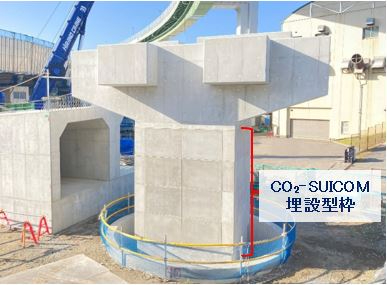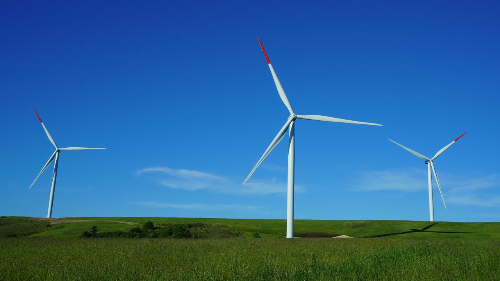J-STORIES ー 世界で初めて、特殊なバクテリアの力でひび割れを修復する「自己治癒コンクリート」の量産化に成功した日本企業が、自社技術を他社に供与して業界全体の脱炭素を推進する新しいイニシアティブを打ち出した。
創業85年を超えるコンクリートメーカー、會澤高圧コンクリート(北海道苫小牧市)は2017年にオランダから「自己治癒コンクリート」の日本での独占販売権を取得。オランダ側との実証実験を続け、大量生産を実現した。
自己治癒コンクリートは、バクテリアとその餌となるポリ乳酸をコンクリートに配合する。ひび割れなどが生じると、割れ目から浸透した水と酸素でバクテリアが活性化し、ポリ乳酸を食べ、炭酸カルシウムと炭酸ガスを生成し、ひび割れを埋める仕組みだ。

コンクリートは通常50〜60年ほどで劣化するため、作り替える必要がある。バクテリア個体の寿命は200年と言われるが、活性化の都度分裂を繰り返して生まれ変わるため、自己治癒コンクリート内部では治癒能力が絶えず保たれ、事実上の「永久構造物」になる。
コンクリート劣化の大きな原因となるひび割れの修復は、建造物の寿命を伸ばすうえで必要不可欠の作業だ。コンクリートの材料になるセメントの製造過程で発生する二酸化炭素(CO2)は、世界の排出量の約8%を占める。建造物の長寿命につながる同社の自己治癒コンクリートは、CO2削減の大きな決め手にもなりうる。
こうした取り組みを業界全体に広げようと、同社は今年1月の取締役会で、創業100周年を迎える2035年までに、仕入れ先や物流、リサイクル過程など同社の商品に関わる全てのサプライチェーンでのCO2排出量を実質ゼロにする目標「NET ZERO 2035」を決定した。
.png)
同社はニュースリリースで「保有する素材系の脱炭素化技術やブロックチェーンを使った温室効果ガスの排出量管理といった独自の取り組みを、希望する同業他社に対して包括的に技術移転する」と表明。「NET ZERO 2035」の対象となるサプライチェーンには、日本国内だけでなく海外の企業も多く含まれている。
同社の會澤祥弘社長はJ-Storiesの取材に対し、脱炭素の実現をめざす中で、「先に気付いた者の責任として、誰よりも早く行動すべきだと考えた。それをより多くの人に発信し、仲間を増やしていくことで、世の中は少しずつではあるが、確実に変わっていく」と今回のアクションの意義を説明。「セメントコンクリート産業が脱炭素の時代に絶対に欠かせない産業」と言われる存在になりたい、と語った。
記事:澤田祐衣 編集:北松克朗
トップ写真:bilanol/Envato
この記事に関するお問い合わせは、 jstories@pacificbridge.jp にお寄せください。
***
***
本記事の英語版は、こちらからご覧になれます。




_smallthumbnail.jpg)






![[PODCAST] 日本新科技助攻不孕症治療(Part4)](https://storage.googleapis.com/jstories-cms.appspot.com/images/1768443226894unnamed-5_bigthumbnail.jpg)








![[PODCAST] 如何打造成功的新創企業社群(第2集)](https://storage.googleapis.com/jstories-cms.appspot.com/images/1748493203370business-man-holding-light-bulb-social-network-2024-10-31-22-37-36-utc_smallthumbnail.jpg)


